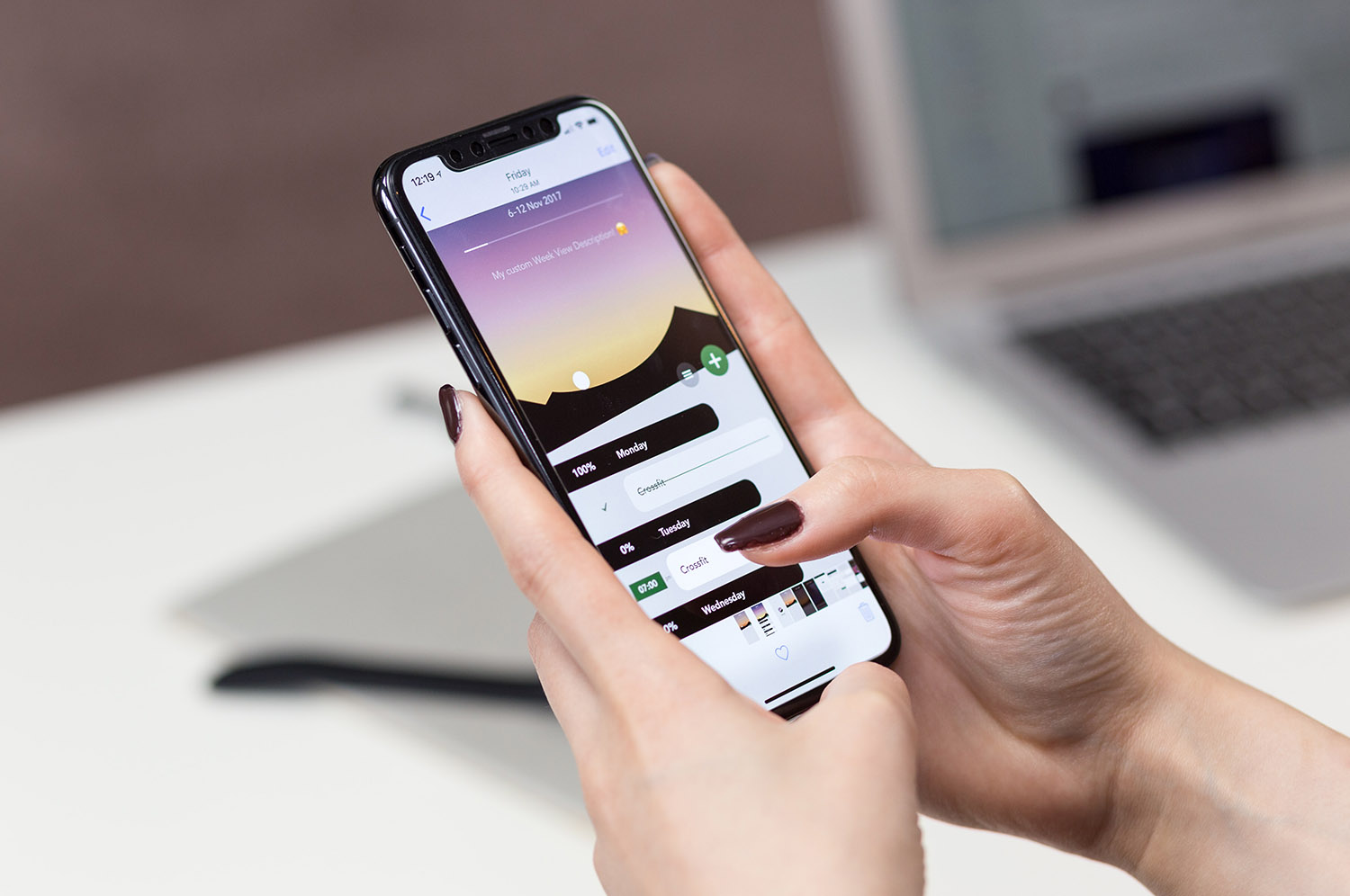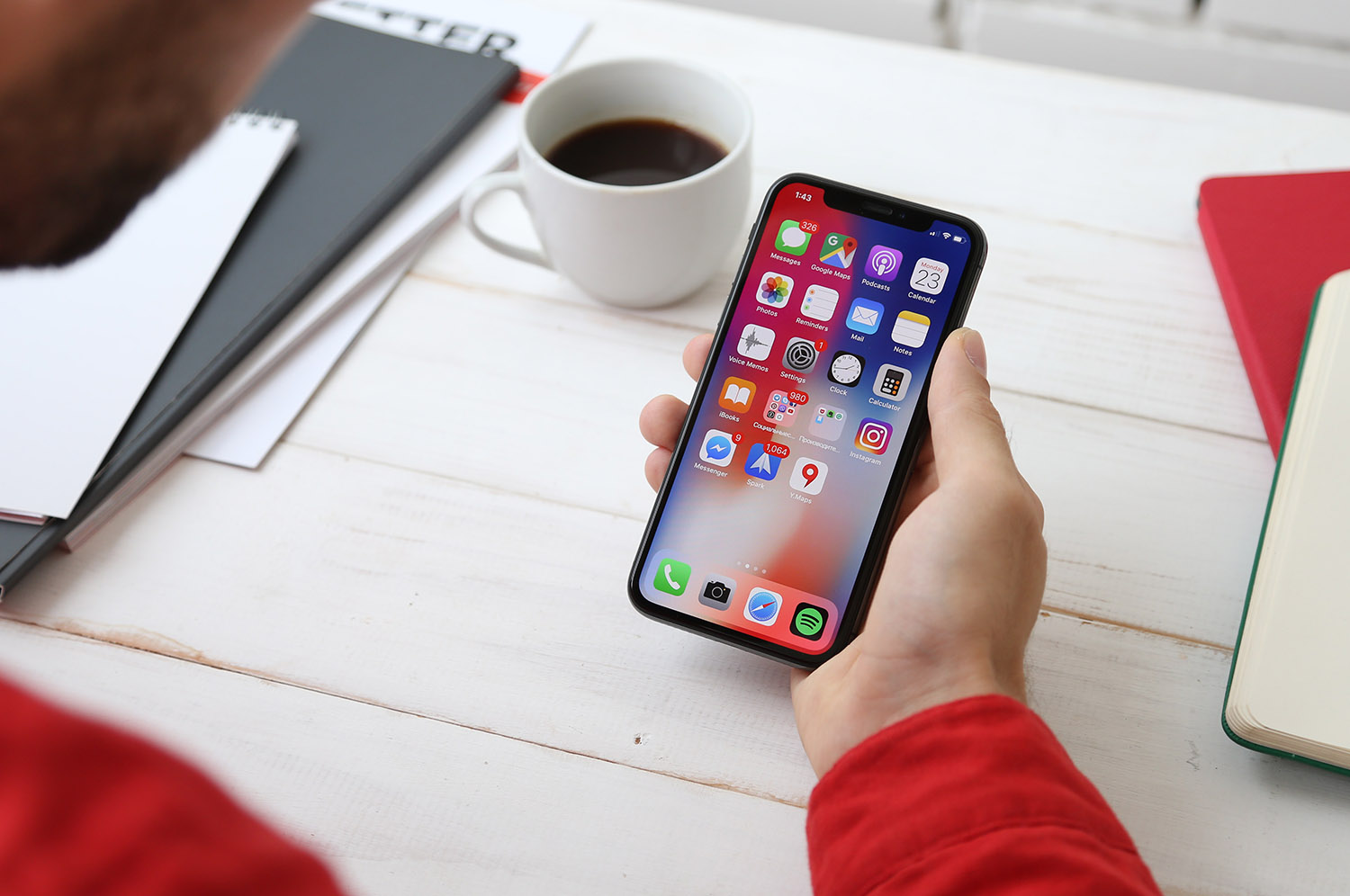Are you planning to make an app for your business? Then you are surely wondering how much it costs to build a mobile app. We are here to answer that question.
Mobile apps can help us with almost everything nowadays - making appointments, ordering food, daily shopping, learning languages, exercising, and almost anything else you can think of. Paraphrasing Apple’s famous slogan: whatever you need, there’s an app for it. According to SimForm research, the average person has 40 apps installed on their phone and millennials have more than 67. As the number of apps on the market grows, so do earnings in the sector. In 2020, mobile app industry revenue hit $581.9 bn in, and Statista predicts it will reach $935 bn in 2023.
No wonder then that so many businesses from virtually all kinds of industries want a slice of this pie for themselves, and decide to create a mobile app for their business as well. Especially with the number of benefits a mobile app can bring - from increased brand awareness and better engagement, to boosting sales and customer satisfaction.
But before companies can get down to work building an app in-house (or outsource it to a software development agency), they may ask a fundamental question: how much does it cost to build a mobile app?

This is the one question that developers and software houses hear most often, but it’s not that easy to answer. If you could just ask a developer how much it would cost to build a mobile app for your business and get a fixed price in response, that would be so much more convenient. But there are no two similar apps, and the cost of making one for your business can vary wildly depending on several factors - from the complexity and type of the app and the number of required features, to the platform that you will use and the developer who you pick.
Want to know where differences in price come from and what factors influence an app’s cost? Well then, grab a cup of coffee (or tea) and sit tight - in this article, we’ll go through the major elements that can influence the cost of mobile app development to give you some ideas about how to answer “how much does it cost to build a mobile app?” for yourself.
Approximately how much does it cost to make an app?
While getting an exact price for your app will require you to consult a developer or a software development company, there’s a lot of research data available on rough estimates of the costs of different types of apps based on their complexity. Let's have a look at some examples.
Cleveroad states that the average price for creating a basic application is $25,000. More complex applications will cost between $40,000 and $70,000, while full-featured apps can be over $70,000.
More research from GoodFirms estimates the rough price of a simple app to be between $40,000 to $60,000, a medium complexity app between $61,000 and $69,000, and a full-featured app from $70,000 to $100,000.
Meanwhile, the prices mentioned in Mlsdev’s research are slightly different. They state $60,000 for a basic app, $120,000 to $200,000 for a medium complexity app, and anything over $230,000 for a full-featured app.
So as you can see, the costs of building an app vary wildly, simply because there's a multitude of factors that come into play when it comes to the final price. Imagine making an app is like renovating a house - would you go and ask a team straight-up how much it would cost to renovate your entire house? Probably not (and if you did, you would probably only get a confused look back in response). First, you need to tell the renovation team what exactly you want to be done so they can estimate what tools and materials they need to use, how many people they need for the job, and how much time it will take them. Only after putting all of that information together can they give you a quote.
When creating a mobile app, there are also several factors you need to take into account:
• Complexity of the app
• The system for which it will be built (iOS, Android) and the type of app (native or cross-platform)
• UX/UI design and the amount of additional visual elements
• How many people you need to hire for developing the app, the time they need, and whether they are an in-house team or outsourced.
Plus, the development phase is just the tip of the iceberg when it comes to apps, since the app might also require regular maintenance, updates, and bug fixing after release. But for now, let's focus on elements of the development phase to help you smartly allocate your budget.

App complexity
The features you need for your app to work as you want are the biggest cost (and time) drivers. If you plan to make a simple app, like an alarm clock, then building it shouldn't take much time or money as there are only a couple of essential features to add and test.
But if you are thinking about creating a multi-featured utility app or a game, that's when things get tricky. The more features you need (and the more complex they are), the higher the cost of building the app and the longer it will take to be finished. Some of the most commonly used features in modern mobile apps are:
• Email or social media login: as this helps users with moving data between devices or restoring it in case of any problems, almost all apps that store user data in some way have such an option - plus this feature gives you plenty of user data.
• Social media integration: gives you users a “share” button that allows them to publish a post on social media straight from the app, which means more exposure for your product.
• User profiles: a place where app users can set the options the way they want and customize the design, which helps a lot with providing your users personalized offers.
• In-app purchases: additional premium features that your users can buy from inside the app.
• Rating system/review reminders: ask your mobile users to rate the app and leave their opinions in the app store or on social media.
• Data syncing: if you have both a desktop and mobile app, data syncing allows for information to be seamlessly passed from between them so that both versions will contain the same user data.
• Push notifications: you can send reminders or special offers to your mobile app users via push notifications.
Besides those features, you might also want to add geolocation, ads, or third-party APIs, use components like the camera, microphone, or Bluetooth, and maybe even introduce the newest technology like Virtual Reality. Plus, you will need to create a backend side to have some of the more complex features running smoothly, thus increasing the end cost.
A simple formula you can use to roughly estimate the required budget is cost = features∗time∗hourly rate, with the result being the approximate price of creating an app with all features you want it to have.

There's one more reason why the price for a complex app will be much higher than for a basic one. Besides the coding, you also need to add app design costs, security features (especially if the app will store user data), plus testing, maintenance, and bug fixing.
The platform for which the app is created
The second vital thing you need to research to estimate your app's cost is the platform on which it will be used. There are two major operating systems for mobile apps: Android and iOS. Which platform is used most often by your target audience? If the majority use one of them in particular, then you might decide to make a native app only for that one. But if your audience uses both iOS and Android devices, then you have three options to consider:
→ choose one platform at first and add support for the other one later,
→ build two native apps,
→ create a cross-platform app.
While the first option is pretty straightforward, the next two require a bit of explanation. Native apps are written in the same programming language as the platform on which they will be used, which is in Kotlin (or Java) for Android and Swift for iOS. Those apps are highly secure, provide a much better User Experience than cross-platform apps (because they are faster and more responsive), and they can access hardware such as a camera or mic.
But for precisely those reasons, native apps take more time to build and are significantly more expensive. If you want to create a native app for both main operating systems then you will need two separate development teams working on each app, which means double the costs.
The second option is creating a cross-platform app that will work on both systems. These are cheaper and faster to produce than native ones, as developers (with the help of cross-platform tools) can simultaneously create an app for both iOS and Android. The flexibility is pretty limited though (since both platforms have different requirements), so such apps usually have problems accessing platform-specific features. The UX might be a bit worse as well, since the app may run slower than a native one.
But despite the drawbacks, a number of cross-platform apps such as Slack and Skype have become popular. The trick is deciding which type of app will work best for your business.
Design Requirements
If you want your audience to keep using your app regularly (and maybe recommend it to others), you need to put a lot of focus on how the app will look and feel like. It should be both aesthetically pleasing and inviting, but also intuitive and fast to use. But when it comes to the app's design, there are plenty of elements you need to think about:
• user interface
• icons
• illustrations
• navigation
• branding
• animations
• text copy
Creating a custom icon for your app (essential for App Store optimization) as well as various essential elements like screens, buttons, or logos will take time to create and can be pretty costly (especially since you need to draw each screen separately - so the more of them in-app, the more it will cost). And let's not even talk about adding custom animations or high-quality visuals, which can not only rack up the costs but also give you trouble with the UX due to many visual elements causing the app to run much slower.

So here comes a question: should your app have a simple design that can be created quickly, or should you rather customize all of the elements? The first option is the cheaper one as you can just implement platform-specific elements. But if you are creating a branded app then a simple, templated look might not fit.
Besides the visuals, you will also need to spend time creating the layout of the interface and defining how users will interact with your applications in order to create a good-looking and user-friendly app. You also need to add testing, improving, and optimizing your design based on the audience reaction to the total costs.
Who will be building your app
Who develops your app will affect the costs as much as the features and the design it will have, so it might be one of the trickiest decisions you will have to make. Here, you have three main options:
▶ Hire an in-house team for your app - recruiting a developer or a team of them is probably the first idea that came to your mind. Not only can you handpick candidates that best fit your requirements, but you will also have full control over their work and can quickly contact them in case of changes or unexpected problems. Plus, they will be 100% focused on building your app.
However, this is the most expensive option. Depending on how many people you will need for developing and maintaining your app, not only will you have to spend time and money on advertising, the hiring process, the salary, and onboarding, but also pay for their equipment, licenses, tools, office space, taxes, benefits, and training, etc. You also have to pay them regularly regardless of the amount of work that’s actually been done.
▶ Outsourcing to software houses - software development shops are often regarded as being relatively expensive, but it’s not necessarily true considering their many benefits compared to creating an in-house team. Based on a project’s scope and requirements, you can get a development team that fits your needs exactly without having to go through recruitment and onboarding yourself. Another massive advantage of hiring a software house is that they consist of specialists in various fields, so a software house will have the right people for your team regardless of the needs you have.

Software development companies are also pretty knowledgeable about the newest technologies and trends, as well as how to use them in practice. So if you are looking for someone who will know how to build an app using the latest technology (for example, Virtual Reality), then you are likely to find someone familiar with this technology in a software house.
You will also only pay for the work done according to the outsourcing company's hourly rates, the amount of materials used, and the cooperation model you picked. While you might end up paying more for the services of a renowned software house, you will get a detailed list of all expenses so you know exactly what you are paying for.
Before picking a software house to create your app, you need to spend time comparing quotes coming from several companies though, as the rates will differ wildly between cities or countries. Also look through the chosen companies past projects, in particular the apps they have created previously.
▶ Freelancers - hiring a freelancer developer for your team is usually the cheapest option as you don't have to worry about training, providing equipment, or work benefits, plus their hourly rates are lower than those of software houses. However, it's not usually the most reliable option.
One, you need to be very careful when hiring a freelancer as the “cheapest” option often doesn't mean “cost-effective”. Don't be lured by a very low price of someone's service, as cheap tends to also mean poor skills. Thus you will risk the app not being ready on time, or not working the way you anticipated. Meanwhile, experienced freelancers typically work for many clients, so you need to be aware that they might not be completely devoted to your project.

Another problem when working with freelancers is that you will need to be their project manager and regularly keep an eye on the progress and quality of their work. Hiring a freelancer might be a good fit for a simple app, but we wouldn't recommend trusting them with creating a complex one.
Conclusion
How much does it cost to build a mobile app for your business? The only right answer here can be that it depends. Multiple factors play a role in your app's final costs, from the number of features you want to add, to how it looks, and finally who will turn your app from a concept into reality. You also need to have extra funds set aside for app maintenance, promotion, and bug fixing. But after reading our guide, you are now much closer to accurately estimating how much you will need to bring your idea to life and setting foot in the mobile app industry without breaking your budget.
You may be also interested in:
➤ The 7 Most Common Mistakes When Creating a Mobile App
➤ 10 Ways to Promote Your Mobile App For Free
➤ How and where to look for mobile app developers?











 Angry Nerds (Poland)
Angry Nerds (Poland) Angry Nerds (USA)
Angry Nerds (USA) Angry Nerds (Canada)
Angry Nerds (Canada)



